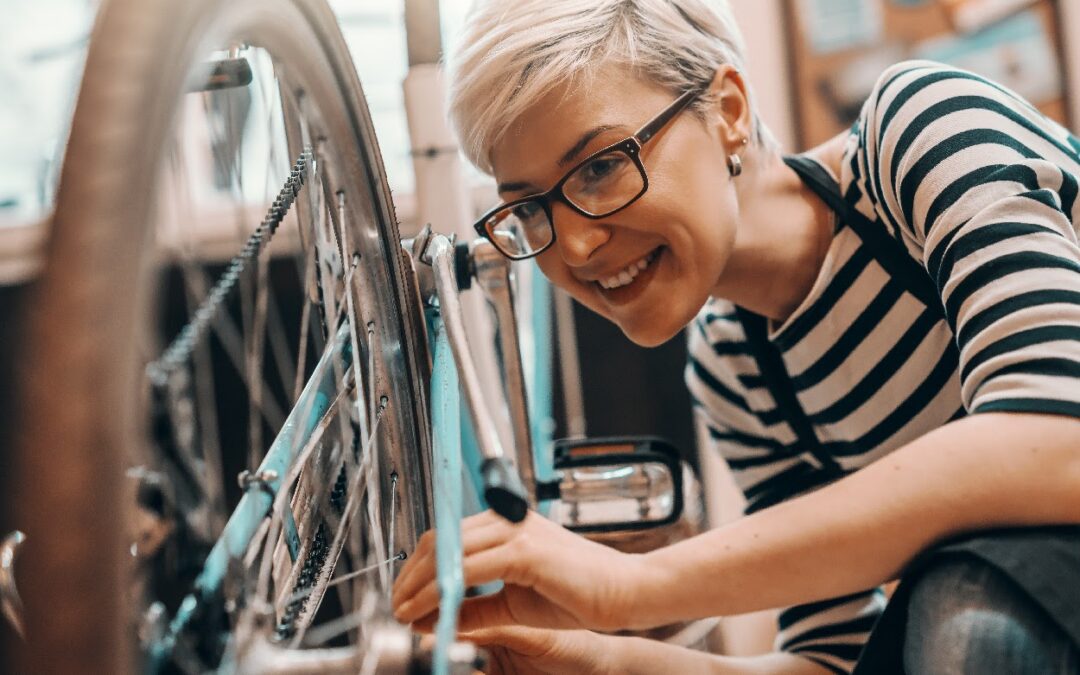Bike riding is the type of activity that can appeal to several different demographics, including athletes, children, and leisure enthusiasts alike. While a reliable bike can last approximately five years depending on its use, it will require regular tune-ups and repairs along the way for optimal performance and safety.
If you have experience working with bikes or have mechanic expertise, you possess a skill that will most likely always remain in demand. If you are also the type of person who is self-motivated, sales-driven, and adventurous, you may be in the perfect position to open up your own Mobile Bike Repair business. To learn about how a mobile business model differs from a brick-and-mortar location, continue reading.
Brick-and-Mortar Bike Repair Shop
The Good
Some business owners prefer settling into a brick-and-mortar location to deepen the customer relationship and experience. Occupying a storefront may promise the occasional foot traffic, but often that relies on established reputation and word-of-mouth. You will need to increase sales to offset your ongoing expenses, which is doable, yet requires effort. While opportunities remain for strategic business owners to withstand the ongoing competition, the unique hardships of COVID-19 have even further damaged in-person business success.
The Bad
The biggest deterrent for most prospective business owners is cost. Opening a brick-and-mortar location requires many startup and ongoing expenses such as rent, taxes, utilities, and more. With the rapid growth of online shopping, brick-and-mortar locations have been forced to allocate more funds into modern marketing and alternative shopping methods. With so much of the consumer journey taking place online or on mobile, storefronts are beginning to look like an outdated middle-man.
Mobile Bike Repair Shop
The Good
Since mobile businesses are built to meet consumers where they are, scheduling flexibility is one of their key benefits. You won’t have to pay to keep the lights on for hours at a time for only a few customers a day. Limiting your hours based on client needs will lower overhead costs and often eliminate staffing needs completely. Almost all of the money you put into your business will be returned to you as profit.
The (Not-So) Bad
Similar to their brick-and-mortar counterparts, mobile businesses have their own startup costs and maintenance expenses. However, you own your vehicle and do not owe anyone monthly fees out of your revenue, meaning, you decide how every inch of your dollar is used. Not so bad afterall, right? Additionally, being a mobile business owner is not cut out for everybody. If you lack motivation or the necessary skills and follow-through to satisfy your clients, you may not succeed in this industry.
Ready to take your skillset on the road? Working with EVO Upfitting makes the process simple. We provide turnkey units with tried and true layouts specific to your industry, so you can serve your clientele comfortably and efficiently. Contact us to get started.

